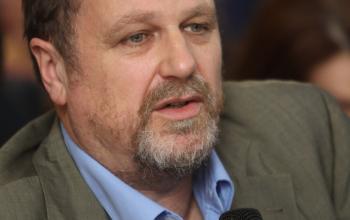Thanks for joining our campaign
Please take a moment to help us spread the word and share with your friends.
|

The financial crash of 2008 was not paid for by those whose speculation had created it. In fact, in terms of income cuts and tax changes, the poorest 10% of the population have paid most[1]. This is even worse than it sounds. If you are already struggling to pay the bills and have no savings, a cut in income can push you into poverty and desperation.
Nearly a third of the Irish population can currently not afford basic requirements like a warm coat or heating their home. Between 2008 and 2013 this number has doubled. The Central Statistics Office’s “deprivation statistics” count the number of people who cannot afford two of a list of basic requirements, like a warm coat or heating their home. Between 2008 and 2013 the number increased from 13% to 31%. The situation is even worse for children and unemployed people, but among those at work, a fifth were experiencing deprivation.
These figures do not adequately reflect the devastation caused by cuts to services like education, health or transport. Public services are critical for everyone, but for people on low income they are especially vital.
Many of these cuts are relatively small, can have a signficant negative impact. For example supports in education, can mean the difference between leaving school early and continuing, particularly for people on low incomes and facing discrimination, like Travellers.
A financial transaction tax (FTT) will not end poverty, but it is an important part of the solution.
It is not my intention to be definitive about how to spend the FTT income, but it is useful to have some indication of scale. For example, 320 to 360 milion million each year could deliver what Barnardo’s and others have planned out as a “Scandinavian style” childcare system, or solve the crisis in social housing. Far less than this could restore the cuts to drugs projects, women’s refuges etc
An FTT would show that we take tax seriously. Bowing to the demands of big finance has meant that we don’t have the income to build quality services even if we had the will.
At EU level, Ireland is known for preventing controls on big capital and opting out of the EU FTT, strengthens this perception. We need to show that we are serious about building a more integrated society in Europe, not just a free-for-all for the rich.
Finally, the FTT can potentially give the EU, and ultimately the World, the information which we need to start monitoring and controlling the out-of-control international financial speculation which is driving us from crisis to crisis
A Financial Transaction Tax will not in itself create an equal society free from poverty, but without it we will have trouble taking even the first steps.
Robin Hanan is the Director of the European Anti-Poverty Network (EAPN) Ireland.
[1] ESRI studies and the Department of Social Protection’s analysis